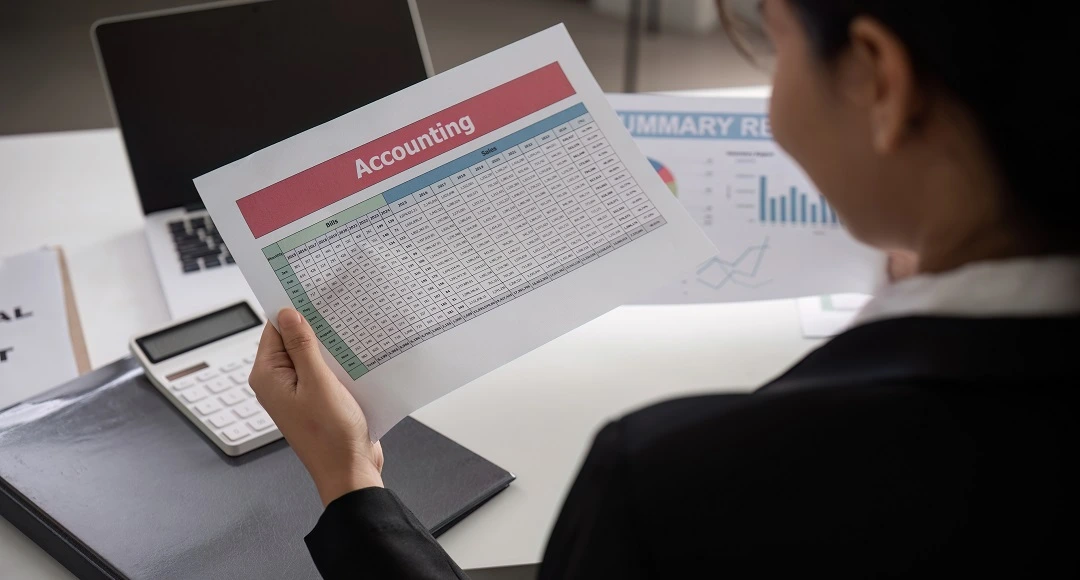Effective Tax Management: 5 Ways You Can Reduce Your Business Tax Liability
Effective Tax Management: 5 Ways You Can Reduce Your Business Tax Liability
Financial statements provide essential information about the company’s financial health and performance. However, the use of financial ratios enables us to analyze different aspects of the business, which are not evident by simply looking at the business’s financial statements.


Taxes are a hard pill to swallow for every business owner, regardless of the size of their operations. To prevent getting the overcast of a tax audit on their business, smart business owners pay close attention to their taxes to get them sorted and out of the way so they can focus on expanding their operations. However, business taxes don’t necessarily have to be a daunting thing.
The thing that makes business taxes such a bitter aspect is their tax liabilities. If you’re directly involved in your business taxes, you can understand how daunting it is to calculate how much you owe the government each time. However, that can be reduced, and doing so can help your finance and accounting department take a breath of relief. Not only can this bring financial benefits to your business but also make tax planning a lot easier for you in the future.
The key to reducing your tax liability lies in understanding what your tax liabilities are and how they work. With a clear picture in your mind, you can work with an expert business tax planning service to reduce how much you’re due in taxes. It’s vital to learn what business tax liability is, its different types, and ways to minimize it to optimize your business’s taxes and introduce newer growth prospects for your business.
What is Business Tax Liability?
Despite how unpleasant it might sound, tax liability refers to the amount of tax you owe as a business to the government. It can be the total amount of tax you need to pay to the local, state, or federal government at the end of each tax year. These tax liabilities are generated from the different financial activities a business takes part in, including owning property, generating income, and hiring employees. Timely and accurately calculating these tax liabilities is vital for businesses to stay compliant with tax laws and prevent any fines or penalties.
Aside from staying compliant, having a clear understanding of business tax liabilities is essential for strategic financial planning. If business owners are clear on what they owe in taxes, they can make informed decisions in terms of expansions, investments, upscaling, etc. By properly calculating and optimizing tax liabilities, businesses can stabilize their cash flow, ensure proper resource allocation, and elevate their chances for growth.
What are Some Different Types of Business Tax Liabilities?
Learning and managing business tax liability is vital for ensuring tax compliance and prompting financial health. However, it’s important to note that there’s no singular tax liability for a business. Depending on your business’s structure and operation size, here are some different tax liabilities you might be eligible for:
- Sales Tax Liability: Amount of taxes collected from consumers on the sales of any products or services.
- Payroll Tax Liability: Amount of taxes collected on employee income, social security, Medicare, etc.
- Income Tax Liability: Amount of tax collected from a business on its taxable income.
- Property Tax Liability: Amount of taxes collected on having ownership of real estate properties.
- Capital Gain Liability: Amount of taxes collected on the profit generated from the sale of any investments or assets.
Business owners can learn further about various kinds of tax liabilities they might qualify for by consulting a professional business tax service.
Want to learn about the next steps for growing your business ?
5 Effective Ways to Minimize Your Business Tax Liability
The process of reducing your business tax liabilities doesn’t comprise some fantastical shortcuts. Instead, it involves careful and strategic tax planning and management which identifies some leeways your business might qualify for while staying 100% tax compliant.
Here are some effective ways to reduce your business tax liabilities in 2024:
- Claiming All Business Expenses
Claiming all your business expenses benefits helps you lower your tax liability by a great deal. You can make a habit of keeping a detailed record of all the business expenses you incur, such as plane tickets for attending client meetings or arranging transportation for your employees for an event. This can reduce the bottom line for your business’s taxable total income.
It’s important to ensure that all your business expenses are safe in the records along with documentation to support them, including invoices or receipts. Since these expenses will not be deducted from the profit you make, you can save up a considerable amount when filing your return for the year.
- Paying Your Taxes Early
Completing taxes on time doesn’t just involve being a law-abiding business. By paying early, you can qualify your business for interest credits or refunds, which can help you earn from your taxes. Paying early taxes requires your accounts to be in order, with a streamlined process that always has your taxes calculated and ready to be paid.
It’s important to ensure you know exactly how early you can submit your taxes and whether your projections for your future taxable income are accurate. Hiring a proper tax planning service can help you learn further about this.
- Contributing to Retirement Funds
Many business owners, especially start-up entrepreneurs, aren’t aware of the fact that contributions to retirement funds are not included in their business’s taxable income. By regularly contributing to their retirement funds, employers can claim tax deductions and employees can benefit from lower individual taxes.
It’s important to start a retirement fund that’s recognized by the government and pay the exact amount that qualifies that payment as deductible. Some proper retirement funds to implement this tax liability strategy are Traditional Individual Retirement Accounts (IRA), 401(k) Plans, Savings Incentive Match Plans for Employees (SIMPLE) IRAs, etc. You can consult a business tax consultant company for further details about this.
- Investing in Research and Development
For businesses that invest in the research and development sector of their operations, there’s a special tax relief provided by the government known as R&D credits. Most business owners neglect looking into R&D tax credits. This is due to the common misconception that only huge enterprises conducting ground-breaking research and development can be eligible for these tax credits. However, that’s not strictly true.
Any of your investments in product innovation, service improvement, or even process identification can be considered research and development, regardless of whether they involve financial or human resources. This way, you can qualify for these tax credits and lower your tax liability to improve your business’s financial health. A professional tax planning service can help you learn whether your particular R&D qualifies for this tax credit or not.
- Calculating Your Capital Allowances
Another type of expense that’s not deducted from your taxable income is capital and investment allowances. These are expenses that are incurred naturally from running a business that deals with a processing plant or any equipment and machinery.
Since these expenses are typically huge, they save you a considerable amount on taxes and are a great way to minimize your business tax liability. You can work with an expert tax planning service for businesses to learn which of your assets can be written off and put under the capital allowance category.
Navigating Business Tax Liabilities with Tax Experts
Handling your business taxes doesn’t just involve compiling documentation and submitting a return at the end of the tax year. Expert tax management comprises smart ways to optimize your business taxes with proper planning, organizing, and strategizing.
With a fortified tax structure running for your business, paying taxes won’t just be about what you need to pay to stay compliant, but what you can benefit from to plan your business’s growth. Accountipro offers diverse and tailored tax planning services for businesses to reduce their tax liabilities, avoid legal penalties, and stabilize their financial health for sustainable development and success.



